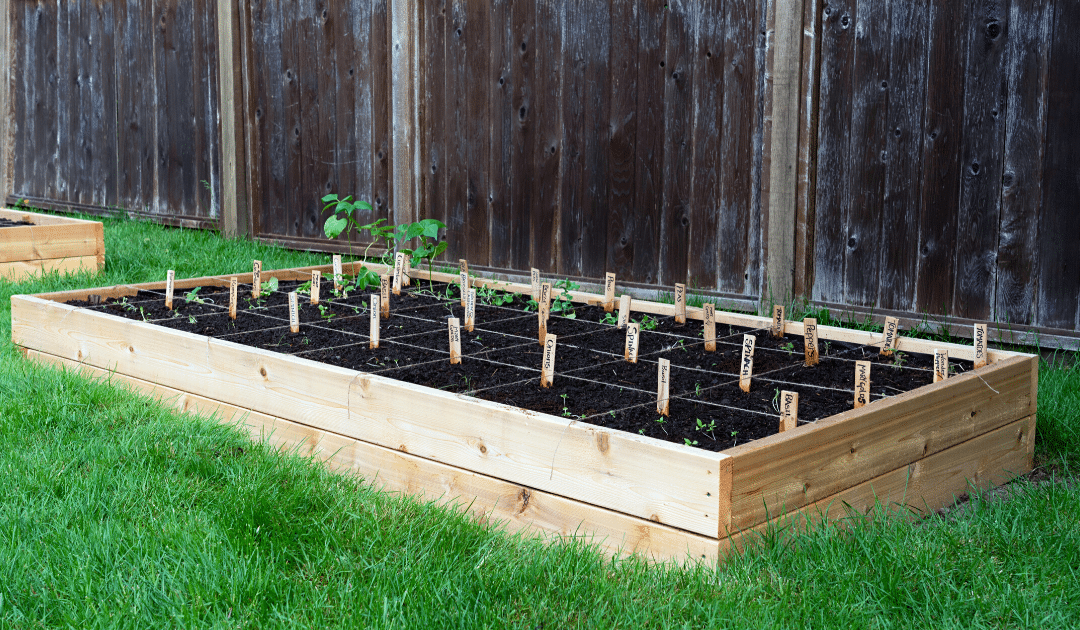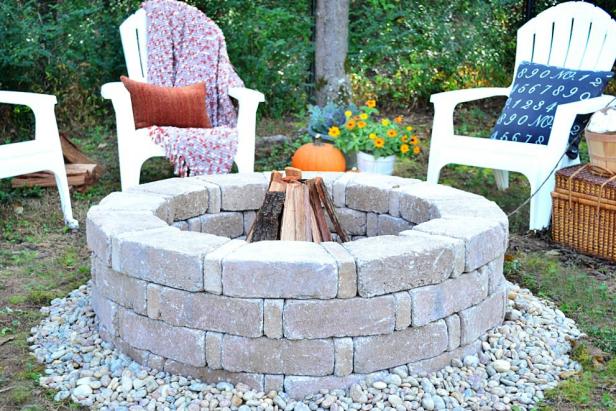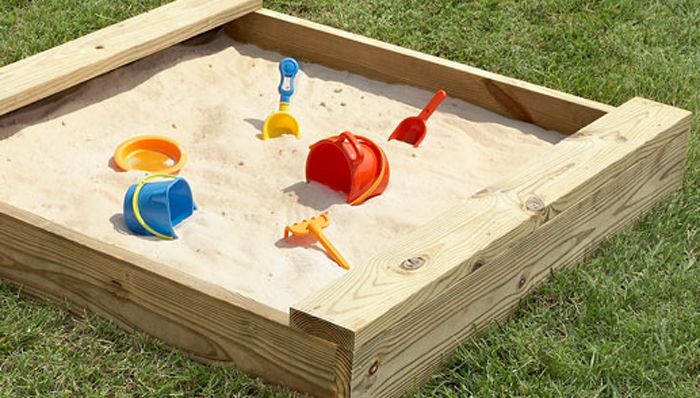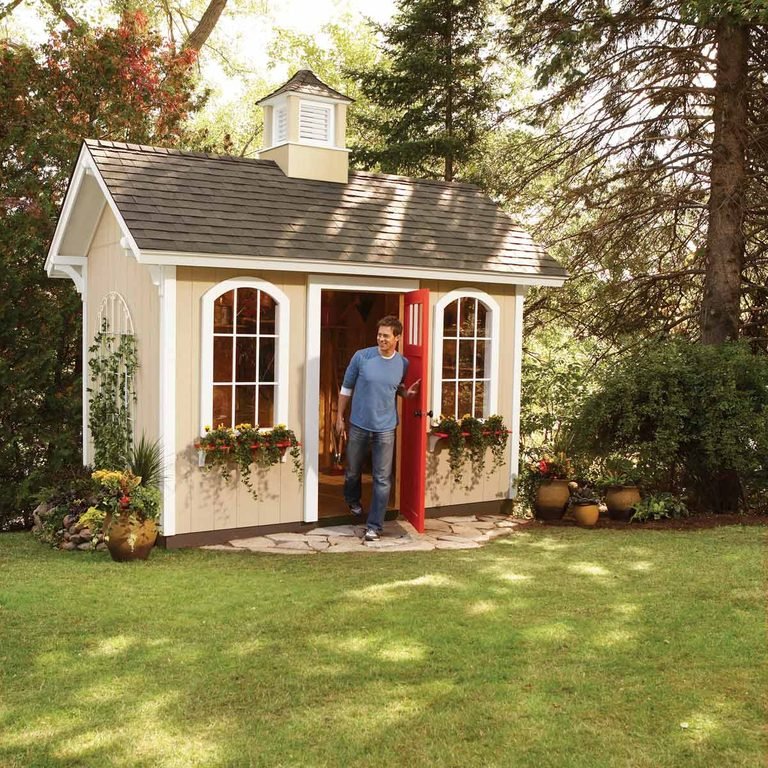
by California Casualty | Travel |
Traveling with your kids is always an adventure no matter where you go, but let’s face it; flying with young children can be exhausting. Between the endless amounts of luggage (sometimes even including strollers and car seats), working your way through a crowded airport, trying to get everyone through security, all of the bathroom breaks, finding activities for them to do before boarding, dealing with tantrums, etc. you’ve got your hands full.
Flying with your kids takes a lot of planning and preparation (and patience!), but it’s rewarding when finally get to your destination with your entire family in tow. If you are planning a family vacation in the near-distant future, here’s some advice to help you fly with your kids on a less stressful note.
Book direct flights (or longer layovers)
When you are booking your travel avoid layovers whenever possible. Sure your flight might be longer or a bit more expensive, but it’s worth it knowing you won’t have to deal with the grueling process of getting all of your luggage and children on and off of multiple planes. And you won’t have to get your children reacclimated to being in the air all over again. If you have no choice and you have to have a layover, opt for a longer one so kids can have a chance to get their energy out.
Schedule accordingly
We all know a sleep-deprived child is a cranky child, so steer clear of red-eye flights. If you don’t have a certain time that you need to arrive at your destination, you have the advantage of choosing a flight time around your child’s schedule! For example, if their nap time is usually in the afternoon, see if you can book an afternoon flight that way they are more likely to nap during the trip.
Talk to your child about the flight process
Obviously, babies won’t know any better, but toddlers can understand basic rules. So set some easy expectations for your trip. Talk to them about how to behave in the airport, what it will be like going through security, and boarding the plane. They probably won’t remember everything you talked about, but you can always remind them of “what you talked about earlier”. You can’t expect them to succeed if you don’t give them a little bit of direction.
Take advantage of early boarding… or don’t
Airlines usually let families board the aircraft first. You don’t have to, but it may be worth your time to get on the plane right away, stow your carry-ons, and get your child settled before other passengers start to board. On the other hand, you may want to wait to board until the very last minute so your child can get as much energy as they can out before you get in the air. Ultimately, the choice is yours.
Pack the essentials to keep them occupied
Your carry-on should include all of the essentials you and your kids will need for your entire flight. This also includes emergency items, and items that will help keep your children occupied throughout the flight; like backup pacifiers, toys, games, ipads, extra headphones, baby wipes, extra formula, extra clothes or diapers, etc.
Be prepared for a meltdown
Children are unpredictable little creatures, one minute they are completely fine and the next they are kicking and screaming for no apparent reason. Pair this with their ears popping and being stuck in one place for hours and you’ve got yourself a meltdown waiting to happen. Be prepared to use any calming mechanism necessary and ride out the storm.
Snacks should also help!
Nothing calms down a screaming toddler better than pulling out a tasty bag of treats that you snagged from one of the snack stands on your way to board. You never know what kind of food the flight attendant will pull out, so be prepared with a few options you know your child loves.
Answering the “Are we there yet?” questions
Questions like “How much longer?”, “Are we getting close?” are signs that your child is getting restless during the flight. You could handle this one of two ways. Pull up the flight map, either on the monitor on the screen in front of you or on your phone, and entertain your child by letting them watch your plane’s path. Or if your child has no interest and watching the plane, let them know that you will be landing soon. Even if soon is an hour away, this will encourage them to sit tight and try to hold their wiggles in until you land.
Lastly, don’t be embarrassed. Accept that you can’t control everything. On some flights, your kids may act perfectly calm and on some flights, they may not and that’s ok. Don’t be afraid of being “that” family. You are doing the best you can and chances are, outside of the airport, you will probably never seen the majority of the people on your flight ever again. These things happen to everyone. Don’t let a bad flight ruin your whole trip.
As always, don’t forget to protect your trip with the correct insurance coverage. And for more travel tips, like how to save money when you travel, click here.
This article is furnished by California Casualty. We specialize in providing auto and home insurance to educators, law enforcement officers, firefighters, and nurses. Get a quote at 1.866.704.8614 or www.calcas.com.
by California Casualty | Auto Insurance Info |
We love—and need—our cars. So we should protect them to the fullest extent. July is National Vehicle Theft Protection Month and it’s the perfect time to take a look at whether we’re doing all we can to keep our cars safe.
Vehicle theft is more common than you think.
The pandemic has caused vehicle thefts to surge to the highest number in more than a decade. There were 873,000 vehicles stolen last year, up from an annual average of 750,000. A car is stolen in the U.S. every 36 seconds. As car prices rise and demand continues, we expect this trend to continue, too.
Don’t think it can happen to you? Think again- anyone can be a victim of vehicle theft. It takes less than 60 seconds for a thief to open your vehicle. They can use shaved or worn-down keys to jiggle the lock open. They can break the window or hotwire the car. For “keyless” vehicles, they use wireless transmitters to capture the signal from your key fob. They can also jam your signal as you’re locking your doors so that your vehicle doesn’t really lock.
How do you prevent vehicle theft?
Thieves are looking for an easy target. The harder you can make it for them, the less likely they are to target your car. Here are some ways you can prevent a break-in.
Anti-Theft Safety Devices
-
-
- Safety locks
- Steering wheel locks attach to the steering wheel to lock it in place.
- Tire locks attach to the outside of the tire, but are not easy to take on and off, so best for vehicles parked long-term.
- Hood locks vary by make and model so get one that fits yours exactly.
- Catalytic converter locks protect this car part that is often stolen.
- Car alarms usually require professional installation.
- GPS trackers are different than your GPS. They are specific devices to help the police find your car.
- Kill switches and engine immobilizers interrupt the ignition process. They change how your car operates so they’re not right for everyone.
Keyless Entry Safety
-
-
- Store the key fob in a signal-blocking box.
- Carry the fob in a shielded wallet or aluminum tin.
- Switch off your fob at night (if your key has this feature).
Other Steps You Can Take
-
-
- Etch your car’s VIN number on each window. Thieves often change the VIN to hide the identity of the car. They will not want to have to replace all the glass and may avoid your car as a result.
- Make sure your driveway is well lit.
- Trim shrubs and trees so you can clearly see your car from inside your house.
- Keep your vehicle doors locked when away from the car even for a minute.
- Close all windows, including the sunroof. Don’t leave your window cracked open even if it’s hot in the summer.
- Park in secure, well-lit areas.
- Don’t leave valuables in view. They could be tempting for a thief.
- Don’t leave your key in the car or your car running.
- Don’t keep your spare key hidden underneath your car. Thieves know where to look.
- Take your garage remote out of your car so thieves don’t have access to your house.
Remember, never leave any personal information in your car, such as a social security card, driver’s license, birth certificate, passport, or financial statement. Otherwise, you could be a victim of identity theft as well as vehicle theft.
Is your vehicle on the most stolen list?
Thieves prefer popular, high-performance cars, with interchangeable parts. They also like older cars, which typically do not have complex locks and security systems and can be sold for parts. Here are the latest statistics on the most common stolen vehicles in the U.S.:
- Honda Civic
- Honda Accord
- Ford Pickup
- Chevrolet Pickup
- Toyota Camry
- Nissan Altima
- Toyota Corolla
- GMC Pickup
- Dodge Pickup
- Jeep Cherokee/Grand Cherokee
Some regions are prone to car theft. Check your local statistics to see if yours is one.
What do you do if you are a victim of a theft?
Even if you take the proper precautions, thefts can still happen. If you are a victim of car theft, here are the steps to follow.
Step 1: Contact the police. Make sure that you have all of the information about your car, as they will need it. This includes the year, make, model, color, license plate number and vehicle identification number (VIN), any special markings (including dents). Write down the police report number; you will need it.
Step 2: Contact your insurance provider. You will need to provide them with the police report number and information about your vehicle. Your provider can tell you what your policy covers in the event of a theft.
Step 3: Arrange for transportation, such as a rental car. Note that rental car companies have a minimum age, usually 25. Some companies may offer rentals to younger drivers but at a higher cost.
Does insurance protect you if your vehicle is stolen?
If you have comprehensive auto insurance, you will be covered in case your car is stolen. Insurance will cover the cost of a replacement car, minus any deductibles or rental car costs that you may need to pay. Drivers who are paying loans on their vehicles are required to have comprehensive insurance. However, once you have paid off your car, this insurance is optional. Check with your insurer to see what is covered in the event of theft.
You can often save on your insurance premiums if you install anti-theft devices. Ask your provider for more information.
It typically takes 30 days before a vehicle is considered gone forever. Work with your insurance provider to get your claim paid, so you can get back on the road.
This article is furnished by California Casualty, providing auto and home insurance to educators, law enforcement officers, firefighters, and nurses. Get a quote at 1.866.704.8614 or www.calcas.com.

by California Casualty | Firefighters, Peace Officers |
One day, you’ll retire and leave the fast-paced life of a first responder. While that day may seem far off, it’s never too early to start planning.
Taking the first steps now will help you make the most out of your retirement later. Here’s what to consider.
What Retirement Will Cost
When you retire, you’ll want to be able to live a similar lifestyle to the one you enjoy now. Starting with the costs of your current lifestyle, you can estimate how much you’ll need for retirement. A general rule is that you’ll need about 80% of your current monthly salary to cover your needs in retirement.
Begin by estimating these costs now and in retirement. When thinking about future costs, you’ll also want to account for inflation (about 2% per year).
-
- Housing (rent/mortgage, utilities, real estate taxes, home insurance, household maintenance)
- Healthcare (including Medicare when you qualify)
- Auto insurance
- Daily living expenses
- Entertainment and travel
The average American life expectancy is nearly 85 years old. That means, if you retire at age 65, you’ll need about 20 years of retirement income.
So, how much retirement savings do you need? Depending upon the cost of living where you are, you will likely require between $1 million and $2 million total to retire comfortably. If that figure alarms you, you’re not alone. Retirement can be daunting if you’re not prepared.
How Much Money Will You Have?
You won’t have a job when you retire, but you will have sources of income. This includes money in savings accounts, investments, retirement accounts, and more. Calculate how much money you will have based on these income sources.
Savings accounts
Putting money away each month for retirement really does pay off. That’s because, over time, you earn interest on your interest. Financial experts recommend banking 15% of your income each year. While historically, many people set up savings accounts at the brick-and-mortar bank where they have their checking account, you won’t earn a lot in interest. Consider a high-yield savings account offered at online institutions that are insured by the FDIC.
Social Security Benefits
Social security is a government program that provides income to retired Americans. It’s based on your lifetime earnings. You pay into the social security system every year that you work and then are eligible for money back when you retire. While social security is a great foundation for retirement, most Americans find that it’s not enough to cover all costs. You can calculate your anticipated social security here. (Note: Some states do not participate in social security for public employees. In those cases, the state offers a public retirement system. If you work in Alaska, Colorado, Louisiana, Maine, Massachusetts, Nevada, and Ohio, you may not receive social security.)
Retirement Savings Plans
If you’re a first responder, chances are that you have a 457 Plan. Similar to a 401(k), a 457 plan is offered by state and local public employers. In both plans, you can contribute pretax money from your paycheck, which then grows without being taxed until you withdraw it. You also may consider setting up a Roth IRA. While your contributions are not deductible, you are not taxed when you withdraw the money. Know which plan you have and its benefits. In many cases, you can choose low, medium, or high-risk plans, which can impact how much you will earn over time.
Pensions
While pensions are increasingly rare, some employers, usually public sector and unions, still offer them. With a pension, you will receive some percentage of your annual income based on how long you worked for the company. You have to meet the vesting requirements, which means that you have to work a certain number of years in order to qualify.
Military Benefits
If you served in the military, you may be eligible for military retirement benefits.
Retirement Job
Many retirees work part-time to supplement their income or simply to keep busy.
Prepare for the Emotional Transition
You’ve spent your whole life serving others in a fast-paced, high-stress job. Retirement will be different, and as a result, could leave you with feelings of emptiness. Stepping down from your job could cause you to feel you’ve lost your purpose. Make sure that you prepare for the emotional transition as well as the financial one.
Figure out where to spend your time
You may wish to travel, spend time with your grandchildren, or volunteer. You may want to work on the house or the yard. You can take continuing education classes at the local college or offer to teach them at your community center. Ask around to find out about the opportunities in your community. Structure your days into a retirement routine that gives you a sense of purpose and an opportunity to enjoy life.
Connect with former team members
First responders are more than just coworkers. You’re a tightly-knit team, and when you retire, those bonds don’t suddenly disappear. Schedule time to connect with your former team members on a regular basis. It will do wonders for your mental health as you tackle retirement together.
Practice healthy habits
Keep yourself healthy through retirement by eating right, exercising, and staying on top of medical screenings. Staying healthy will help you to enjoy retirement to its fullest.
This article is furnished by California Casualty, providing auto and home insurance to educators, law enforcement officers, firefighters, and nurses. Get a quote at 1.866.704.8614 or www.calcas.com.

by California Casualty | Auto Insurance Info |
It may be hot, but chances are it’s not hot enough to fry an egg on the hood of your car. That’s just one of the many myths you might hear about hot cars. While such legends ] are fun to think about, some myths can be dangerous if believed.
The more you know about the truth about hot cars, the better you are able to stay safe this summer
Below are eight common hot car myths. We’ve also added steps you can take to protect your car, your kids, and your pets as the temperatures soar this summer. Here are the myths- debunked.
Myth #1
It’s only 10 minutes. It’s fine to leave the kids or the pets in the car.
You would be surprised at how quickly the inside of a parked car heats up. In just 10 minutes, the temperature can rise 20 degrees. Cars can reach dangerous levels quickly. It could be 60 degrees outside, but the inside of the car could be up to 100 degrees due to the windows functioning like a greenhouse and trapping the heat inside.
Don’t leave anyone in the car, especially children and pets who may be vulnerable to the heat. Children’s bodies cannot cool themselves as well as adults. Dogs can only cool themselves by panting. Even if you think it’s not that hot out, it’s best to err on the side of caution. What about if the air conditioning is running? That’s not a good idea either. There have been instances where the compressor has failed or dogs or children have bumped the controls, switching from cool to heat. There is never a safe way to do this so make alternate arrangements for child and pet care. If you see a child or pet in a hot car, call 911. It may just be a lifesaving call.
Myth #2
Leave the window cracked open to keep the car cool when you park.
You might think that opening the window a crack will help keep the temperature at a reasonable level. Surprisingly, there is just about a 2-degree difference between a closed window and one that’s cracked open. Plus a slightly open window can be an invitation to car thieves. It’s not worth risking a theft of your car or endangering anyone or anything inside.
If you’re parking your car, and you’d like to keep it cool, try these tips.
-
- Park in the shade or, if possible, in a garage.
- Use a sun shield for your windshield.
- Cover the interior with light-colored fabric.
- Consider a solar-powered ventilation fan.
- Finally, tinted windows can make a difference (but check first to see the rules in your state. Not all locations allow them)
Myth #3
You can save a lot of money by rolling down the windows and not using you’re a/C.
Want to save money in the summer and be more fuel-efficient, just sweat it out, right? Wrong. While blasting your air conditioner in the summertime does slightly increase gas usage, it is not enough that you would even notice. And while most people think all they have to do is roll their windows down so they do save that small percent of gas, rolling your windows down at high speeds can also reduce your fuel economy. This is because of the aerodynamic drag (wind resistance) it creates, making your vehicle use more energy to push through the air
Remember a hot driver is a distracted driver. So, don’t be afraid to use your AC. If you want to get the most out of your fuel this summer, roll your windows down when you are driving at lower speeds or when you first get into your vehicle to let the heat out and use your A/C (at a consistent temperature) when you are driving faster.
Myth #4
Only neglectful parents forget their child in a car.
You hear stories of babies or young children being left in cars with tragic endings. You might assume that those parents who would forget their children are bad parents. That’s not the case. It could easily happen to anyone.
Follow these tips so that you don’t put yourself or your child in this dangerous situation.
-
- Keep an important item in the back seat with your children such as a work ID, purse or wallet, or cell phone.
- Put your child’s stuffed animal, diaper bag, or other items in the front passenger seat as a reminder.
- Ask your child’s caregiver to contact you if your child does not arrive at a certain time.
These steps will help keep everyone aware—and safe.
Myth #5
You can’t do anything if your car overheats.
A vehicle can overheat for a number of reasons, but usually, it is because something is wrong with the cooling system. If you don’t take the proper action your engine could become permanently damaged. If your car overheats, don’t just pull to the side of the road- there are other steps that you need to take.
First, turn off the A/C and crank up your heat. We know this sounds bizarre in the summer, but it will pull heat away from your engine and give you time to pull over to a safe location. Next, shut off your car for about 15 minutes. Keep an eye on your temperature gauge and make sure it starts to drop. If you haven’t already, this is where you will need to check and add your coolant, if needed. Finally, after giving it a few minutes rest, restart your engine and take it to your local mechanic.
Myth #6
If it’s hot enough, your car window can shatter.
Unless your windshield has previous damage, you don’t have to worry about the glass shattering. But if the conditions are right, it could crack. Glass will expand when it’s hot and contract when it’s cold. Big swings in temperature can cause stress cracks, cracks that suddenly appear for no apparent reason.
You can prevent stress cracks in the future by
-
- Avoiding large changes in temperature such as blasting the air conditioning in a hot car.
- Parking in a garage to reduce heat exposure.
- If you’re washing your car on a hot day, try lukewarm water instead of cold for less of a temperature difference.
If you do get a stress crack, get it fixed as soon as possible. Check with your insurance provider to see if your policy will cover stress crack damage.
Myth #7
You need to fill up your gas tank in the morning
Many people think that you should fill up your gas tank in the morning when it’s cooler outside because gasoline will expand when heated. Meaning your get more energy per gallon in the early morning hours than you would later in the day when the temperature rises. This is false.
Not only does the energy content of gasoline stay the same in varying temperatures, filling stations store their gas in underground tanks. So the temperature of the gasoline coming out of the pump varies very little throughout the day. No matter what time you get gas, even in extreme heat, you will be getting the same energy content.
Myth #8
The heat won’t have a lasting effect on how your car runs.
Excessive heat can affect your car in the long term. Hot air in your tires causes them to expand, and they could over-inflate. The heat thins your engine oil so it doesn’t lubricate as well. High temperatures cause battery fluid to evaporate, which can weaken batteries or speed up the corrosion process.
Follow these tips to protect your car this summer.
-
- Monitor your tire pressure and watch for overinflation.
- Fill your engine oil to the highest level.
- Check your battery’s charge
- Schedule routine maintenance.
- Make sure to maintain your car to keep it running well.
These myths are proof that you shouldn’t believe everything that you see or hear. ( And as for debunking the” frying an egg on a hot car hood” myth, it has to be about 158 degrees Fahrenheit before eggs even start to cook. That egg can also damage the paint surface and turn into an expensive repair).
Knowledge is power, especially when it comes to your vehicle. Use yours wisely and have a safe summer.
This article is furnished by California Casualty, providing auto and home insurance to educators, law enforcement officers, firefighters, and nurses. Get a quote at 1.866.704.8614 or www.calcas.com.

by California Casualty | Homeowners Insurance Info |
Summer is a great time to tackle outdoor projects. We’ve highlighted 5 of our favorites—fun and easy DIY ideas that will transform your yard and your summer.

The hammock is a classic addition to any yard. Plus, a project that gives us a reason to nap afterward is okay by us! This hammock stand is light enough to move around the yard. You’ll need to purchase the actual hammock but if you prefer, you could make your own hammock, too. The project requires some knowledge of power tools and saws; if you aren’t used to them, ask for help from an experienced DIYer.
-
- You can get some big box stores or lumber yards to cut the wood planks for you.
- If you don’t have weatherproof wood stain or paint, use regular versions. Just add two coats of varnish.
- Put your hammock in a shady corner, and preferably one with a view.
- Make sure to supervise kids in a hammock. Hammocks can be an attractive nuisance where children can get stuck or injured.

A garden path is a beautiful addition to your home and can add curb appeal. While you could create expensive versions with stone or pavers, we’ve chosen an easy and lower cost version that uses gravel as its base. Gravel has several advantages. It works in many different climates. It allows rain to soak through to the ground. It’s also easy to reverse if you decide later to do something else.
-
- Gravel comes in different colors. Choose one that complements the color scheme of your house or garden.
- Include a decorative edge to set off your gravel path.
- Add flowers along the edges for a pop of color.
- Add interest with flat stepping stones in the center of the path.

Gathering around the fire pit is the perfect activity to cap off a summer night. The supplies aren’t necessarily expensive, but they can be heavy so ask for extra help if needed. Make sure the fire pit is a safe distance from the house and away from high grass, bushes, and low-hanging trees. Clear and level the ground. Then build the pit using large and small bricks in a circular shape. Fill it in and edge it with small rocks. Then create a seating area, and let the fun begin.
-
- Check your local building codes and requirements so you know what is allowed.
- Avoid burning treated wood, wet wood, or anything that gives off a gas or dense smoke.
- Don’t use flammable fluids to start or relight a fire.
- Check the weather. If windy conditions are forecast, it could be dangerous to light a fire. Embers could easily blow towards your home creating a house fire.
- Supervise children closely around a fire pit. Do not leave them unattended for any reason.
- Safely dispose of ashes when you’re done for the night.
- Keep a fire extinguisher nearby.
- Your homeowner’s insurance may require extra coverage. Talk to your agent.

When you can’t take your kids to the beach, a sandbox is the next best thing. This DIY project is easy to construct and can offer hours of fun. With this sandbox plan, you construct the sides and use the earth for the bottom. Choose the right spot, clear the area and dig down a little bit further into the soil to help keep the walls in place. Then cover it with landscape fabric, assemble the sandbox and fill it with play sand.
-
- Add seats by adding 4 triangles to the corners of the sandbox.
- Add space for a beach umbrella by drilling a hole for a short piece of PVC pipe.
- Make sure you put the sandbox in a place where you can easily see the children.
- Cover the sandbox when not in use. Plywood works well. So does a plastic tarp.

You can turn your storage shed into a fun, livable space, such as a music studio, children’s playhouse, or craft room. You’re only limited by your imagination. Start with a new coat of paint. Caulk any cracks, add insulation and drywall. Hire a subcontractor if you’d like to install electricity, lighting, air conditioning, or heat. Add some furnishings, décor and enjoy!
-
- Check with your town to determine if you need a permit for the renovation.
- If electrical or plumbing work is needed, chances are you will need to get a permit.
- Consider painting your shed in the same colors as your home for a “mini” version.
- Find inexpensive décor and furnishings on Facebook marketplace.
- Make sure you can lock your shed to protect your new living space.
If your project increases the value of your home or adds liability, you may need to adjust your insurance. Check with your agent or get a free policy review to find out more.
This article is furnished by California Casualty, providing auto and home insurance to educators, law enforcement officers, firefighters, and nurses. Get a quote at 1.866.704.8614 or www.calcas.com.









